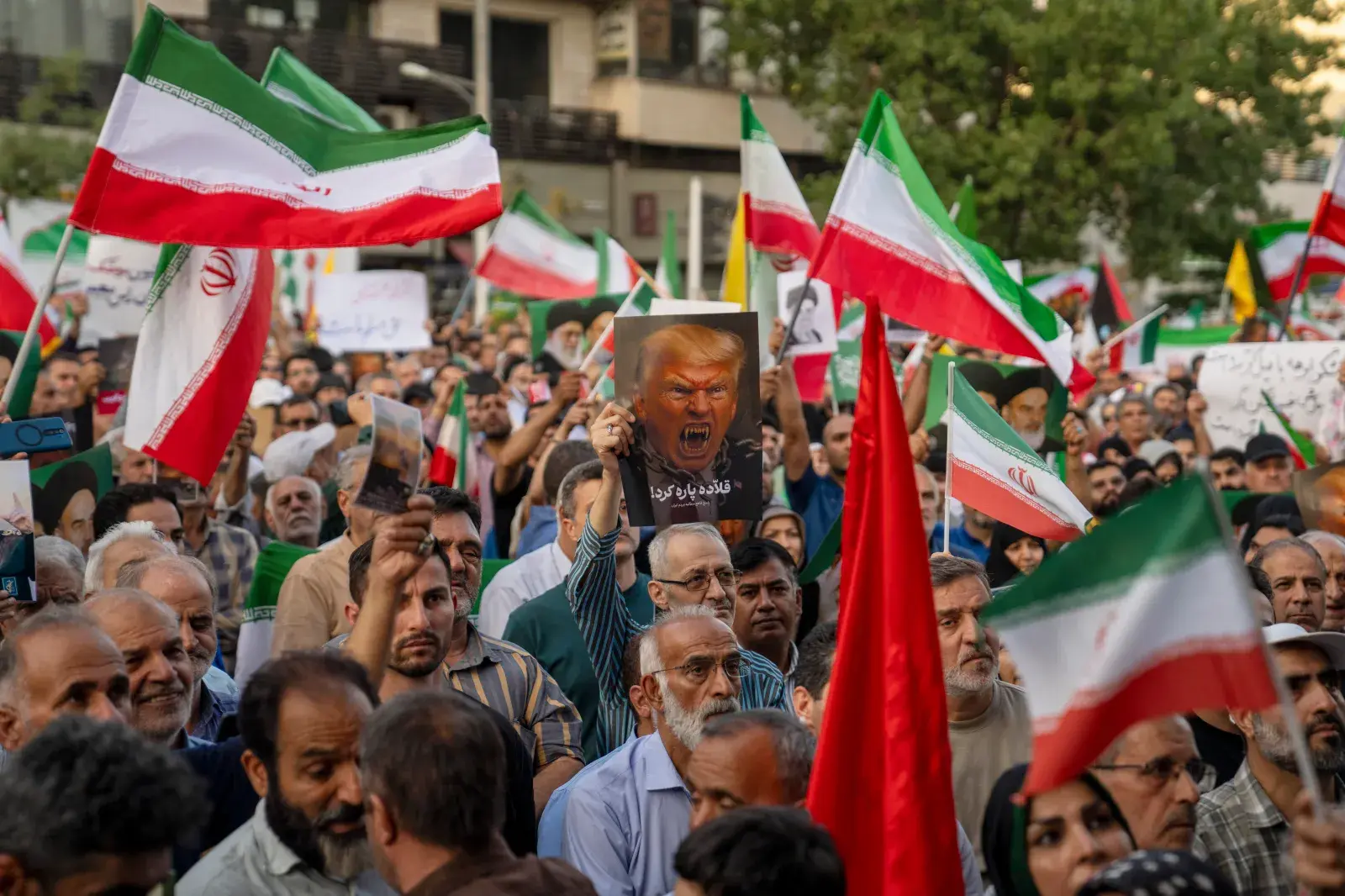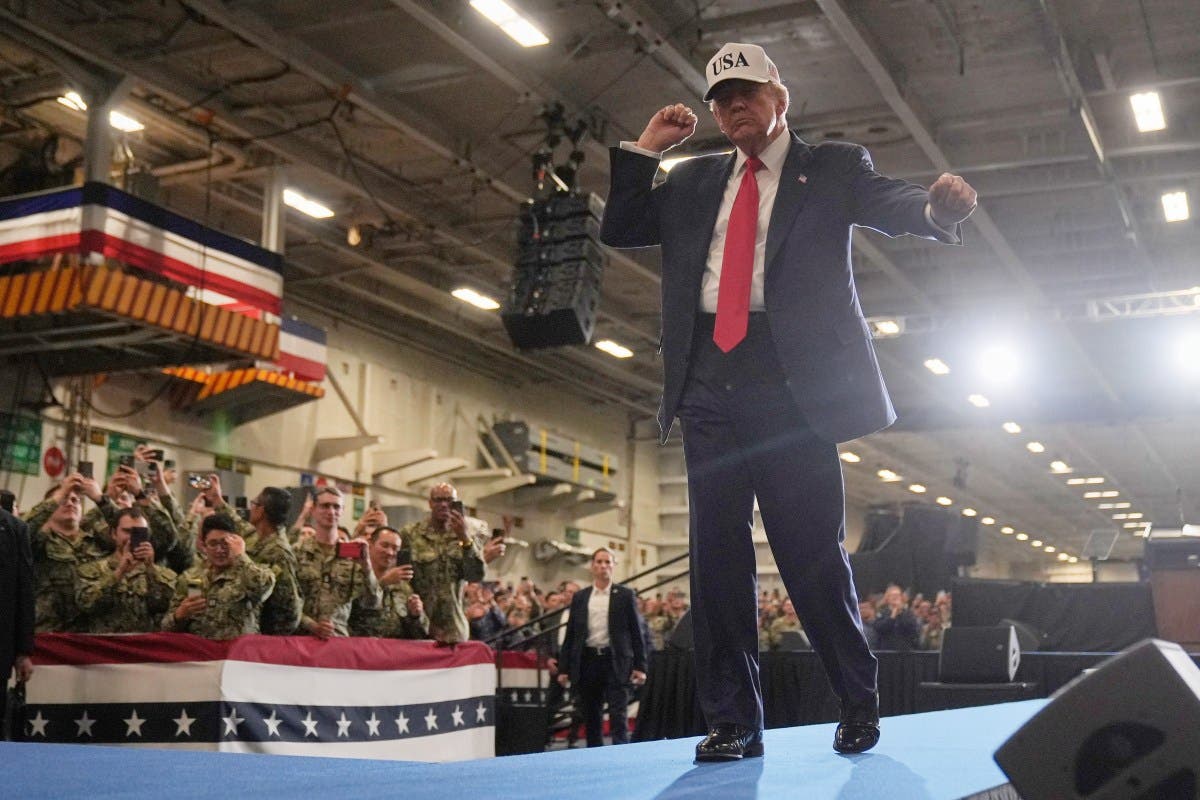President Donald Trump said on Monday that Iran was close to building a nuclear bomb before the U.S. attacked it during the Israel-Iran war in June, adding that it is one of eight wars he stopped.
“I ended eight wars in eight months—the most of any president in history,” Trump said, speaking to troops aboard the USS George Washington in Japan on Monday. The U.S. had struck three Iranian major nuclear facilities with B-2 bombers in a single mission during the 12-day war.
“They took out that nuclear capability. Iran would have had a nuclear weapon within two months. Not anymore,” the president stated.
Why It Matters
Trump and his administration said Iran’s nuclear facilities were obliterated, while Iran acknowledged severe damage to the sites at Natanz, Fordow and Isfahan. Tensions have subsequently risen between Tehran and Western powers over its nuclear program, leading to a complete deadlock on related deals and the reimposition of U.N. sanctions, also known as the snapback mechanism.
Washington has separately carried out a “maximum pressure” campaign targeting Iran’s nuclear and missile programs, as well as key economic sectors such as oil exports and financial networks.
With no standing agreements to replace the recently expired Joint Comprehensive Plan of Action (JCPOA), a 2015 deal regulating Iran’s nuclear enrichment which Trump unilaterally abandoned back in 2018, Iran’s nuclear activities will go unmonitored.
 What To Know
What To Know
The eight wars Trump take credit for ending or preventing include Kosovo and Serbia, Congo and Rwanda, Pakistan and India, Israel and Iran, Egypt and Ethiopia, Armenia and Azerbaijan, Cambodia and Thailand and recently the Gaza ceasefire deal between Israel and Hamas.
In a recent interview with Time magazine, Trump implied that if Iran had remained powerful and a “bully,” peace in the Middle East, such as the Gaza ceasefire deal and broader normalization agreements he seeks between Arab countries and Israel, would not be possible.
“So you don’t have that threat. Now, because you don’t have that threat, everybody’s open to peace. Because you don’t have that threat, which they wouldn’t have been before, because Iran would have been against everything,” he told Time on October 15.
Iran has criticized the Israeli and U.S. strikes for taking place during ongoing negotiations. Tehran and Washington had been engaged in talks to potentially reach a new nuclear agreement, based on Trump’s diplomatic push at the beginning of the year. However, disagreement over enrichment had stalled progress; Iran refused the U.S. demands for a zero-enrichment policy.
What People Are Saying
U.S. President Donald Trump said: “We’re ending wars all over this planet…I ended eight wars in eight months—the most of any president in history. This includes Kosovo and Serbia, the Congo and Rwanda. Pakistan and India. Israel and Iran—you saw that. How about those B-2 bombers? They went in there. They took out that nuclear capability. They would’ve had a nuclear weapon within two months. Not anymore.”
Iran’s Foreign Ministry spokesman Esmaeil Baghaei quoted as saying on Tuesday, by Iran International outlet: “The United States has always said that all options are on the table,” adding Tehran “did not expect such a threat during previous negotiations,” but must remain alert and “take past experiences into account” in any future talks.
Brian Katulis, senior fellow at the Middle East Institute, wrote in an assessment report on U.S. policy, Monday: “Regarding Iran, the Trump team has doubled down on ‘maximum pressure’ on the regime after the June 12-day war, which did considerable damage to that country’s nuclear and military infrastructure. But the pathway to a lasting diplomatic resolution remains elusive.”
What Happens Next
Under Trump, Washington’s ability to contain simultaneous crises across the Middle East will be put to test in coming months, especially on the fragile ceasefires between Israel and Hamas or Iran.
